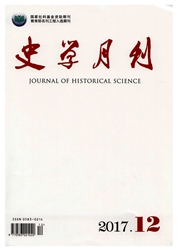

 中文摘要:
中文摘要:
洪武、永乐年间曾经两次大规模迁徙富户到京师,这是明初统治者为巩固自身统治而采取的重要措施。依据新发现的徽州文献,结合其他文献资料,对此可做进一步的深入研究。明初的京师富户之役是为修建新都而针对特定富民群体设定的一种极为严苛的徭役,被强迁的富户为此付出了极为沉重的代价。明中期以后,京城的大规模建设业已完成,统治者的治国方略和政策措施也做了一定的调整,对京师富户役进行了多次宽免。在明代中期的役法改革中,京师富户役逐渐演变为一种在原籍地摊派征收的银差,明初强迁至京师的富户之役则逐步消亡。
 英文摘要:
英文摘要:
In the reigns of Hongwu and Yongle Emperors large number of wealthy families were in two times forced to migrated to the capital. It was an important measure of the early Ming rulers in consolidating the power of the Ming dynasty. This topic can be further researched in light of the newly-discovered Huizhou documents combined with other materials. In the early Ming dynasty, it was a very harsh corvee aimed at specific wealthy clans. The main purpose of this policy was to construct the new capital, and the forced rich families suffered highly. By the middle age of the Ming, large-scale construction of the capital had been finished, the policy changed accordingly, the government relieved the capital's rich families' corvee. In the reformation of the corvee system, the capital's rich families' corvee became a silver tax collected in the hometowns of wealthy families , the corvee of the wealthy families forced to the capital came to its end gradually.
 同期刊论文项目
同期刊论文项目
 同项目期刊论文
同项目期刊论文
 期刊信息
期刊信息
